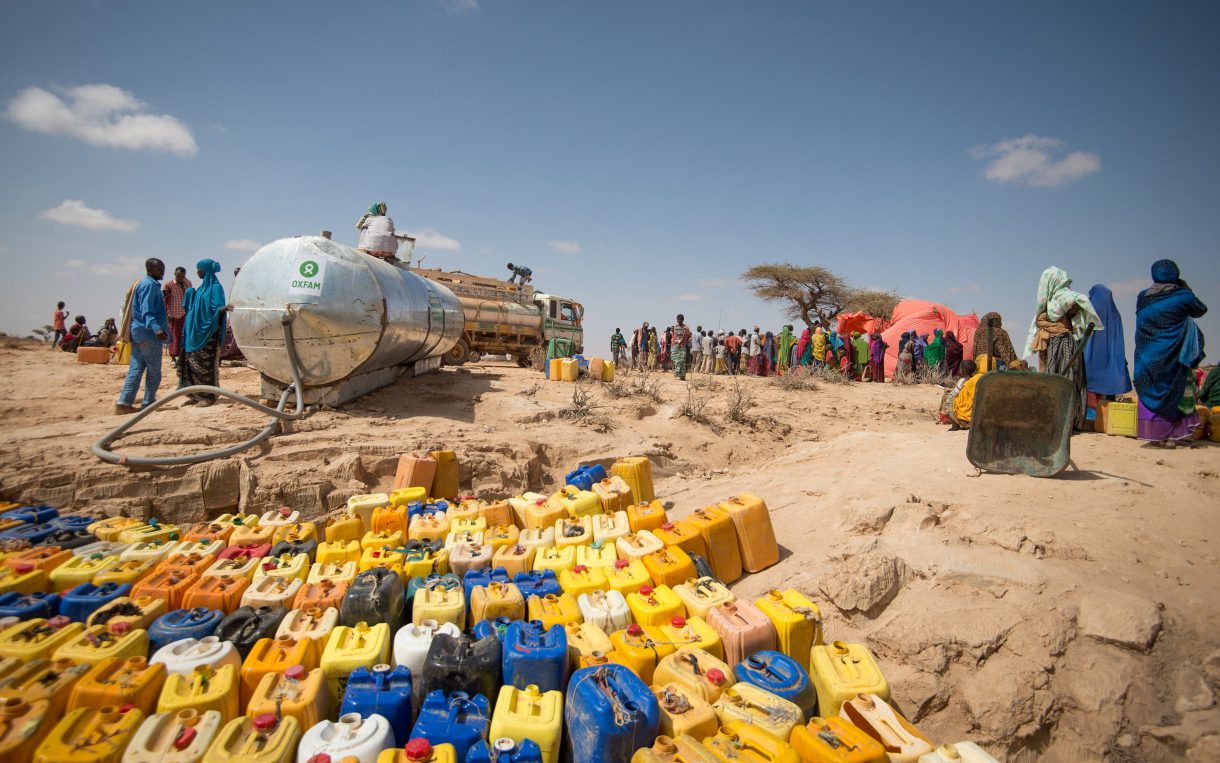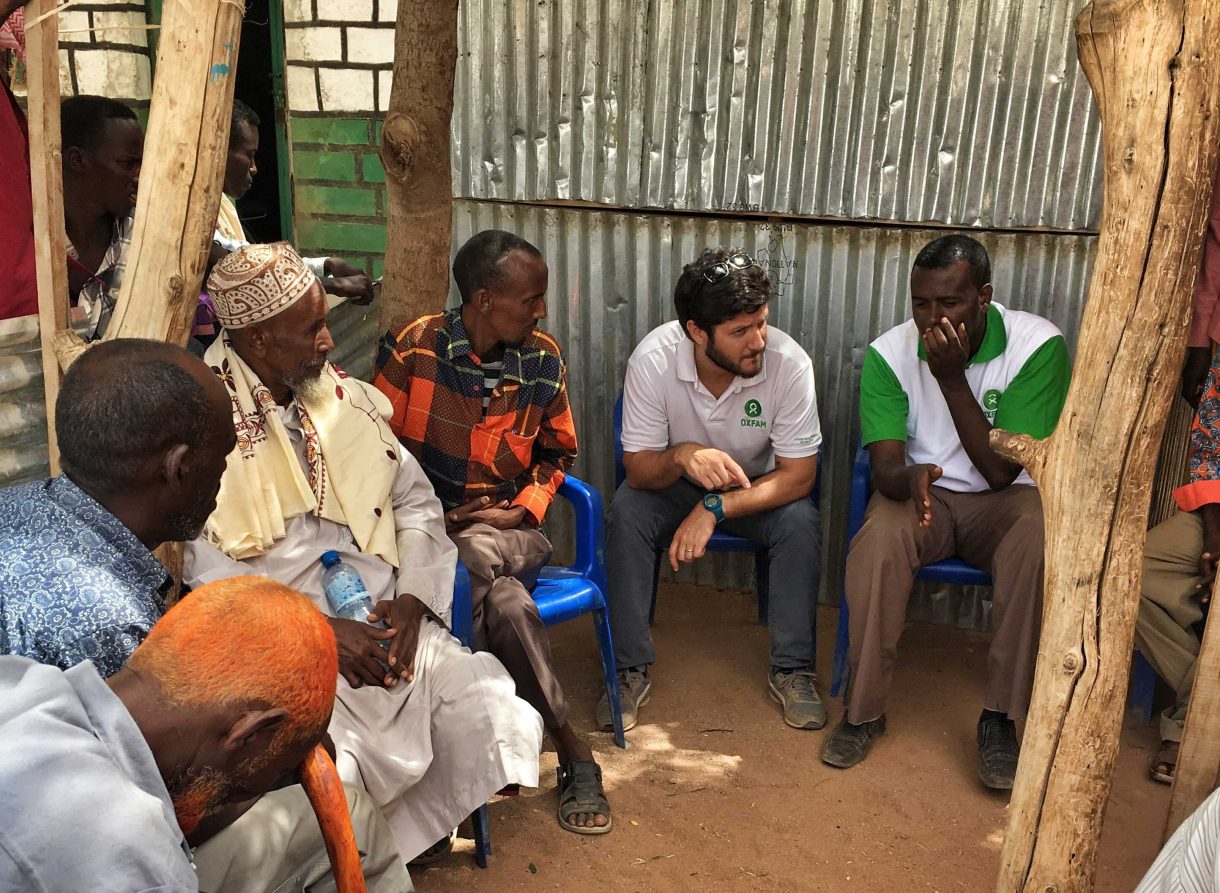“We are saving lives with humanitarian aid in Somalia”
 Oxfam has been trucking in water to areas experiencing severe shortages. More than three million people across Somalia are facing serious levels of food insecurity, and more than 700,000 have been displaced by the crisis. Photo by Allan Gichigi/Oxfam
Oxfam has been trucking in water to areas experiencing severe shortages. More than three million people across Somalia are facing serious levels of food insecurity, and more than 700,000 have been displaced by the crisis. Photo by Allan Gichigi/Oxfam
Eye-witness description of the humanitarian situation in Somaliland, and Oxfam’s response
Nahuel Arenas is the director of Oxfam’s humanitarian program. He was recently in Somalia and came back with a report he delivered on July 17th; the following is an excerpt from his report.
In the past, Somalia seems to have had a drought about every three years, which at least gave time for people to recover. This time around there has been a drought for the last three consecutive years. People have really exhausted all their coping mechanisms and are left with nothing or very little. I met a man last week, a pastoralist in eastern Somaliland, where the drought has hit the worst, and he told me that he had 60 camels before the drought started, and now he is left with one. I also talked with a woman who had 400 goats, now she has only 30. In some parts of Somaliland more than 85 percent of the animals have been lost. Animals are the main source of livelihood in Somaliland, so this represents a huge loss of wealth.
There were some rains in April and May in some areas, but they were very poor rains. I looked at many wells, and the water levels were very low, and getting lower. People are really concerned. They are waiting for the short rains that normally come in September, but even if these short rains are good, they will not be enough. There will likely still be a food gap, which is a huge concern for people as well as for animals.
All this has created a lot of displacement in Somaliland. In urban areas we are seeing many people who have come from rural areas. There’s a lot of local solidarity—Somalians are helping their brothers and sisters, but there is not enough for everybody, that’s the reality on the ground.
Saving lives
We are saving lives with humanitarian aid in Somalia. I heard a lot of reports from people that, thanks to humanitarian aid, they have been able to feed their children. But this will require a sustained effort going forward to help people come out of this terrible situation.
Millions and millions in Somalia are in crisis and emergency levels of food insecurity. The fact that we are not technically calling this a famine yet does not mean that the level of the food crisis is not terrible and massive.
People have lost their animals and are struggling to get food and water for themselves and their animals. They are losing their wealth and going into debt. It will take years and years for them to recover. Our response includes distributing cash, particularly to women-headed households. While most of it is used to buy food, part of this cash is being used by some to pay off debt.
We have been helping with access to clean water, and we may be looking at different ways of managing water altogether if this drought condition is the new norm.
Lack of water and lack of sanitation have created a deadly outbreak of acute watery diarrhea. We have data from health centers in urban areas, but many people in rural areas do not have access to health centers, so the real situation might be much worse.
Oxfam’s response
We have been trucking water in an extensive operation since February, because that was the only available option, but we are trying to phase that out in favor of rehabilitating wells and other local sources of clean water. We are providing cash to people who can buy food and other necessities in places where markets are at least somewhat functioning. In these cases we prioritize distributing cash instead of food. This gives people the option to buy food, or pay for transportation to get health assistance, and it protects the local economy.

We also build latrines and sanitation facilities, and raise awareness of the importance of hygiene.
Oxfam plans to reach around 200,000 people in our response, and our target budget is $15 million – we have covered about 35 percent of this budget. We also plan to expand our response from eastern Somaliland into Puntland to address access to food, clean water, and sanitation. We also want to expand our cholera-prevention work, particularly in rural areas.
Help deliver life-saving assistance to families facing severe hunger.